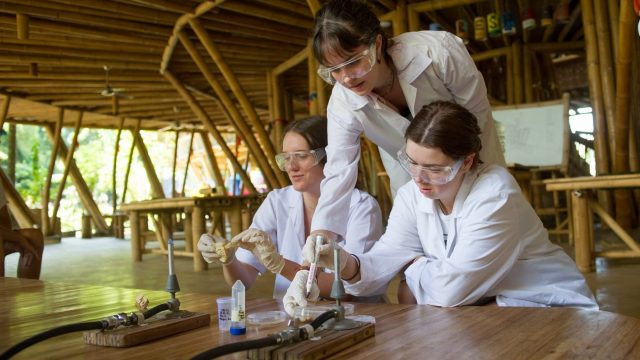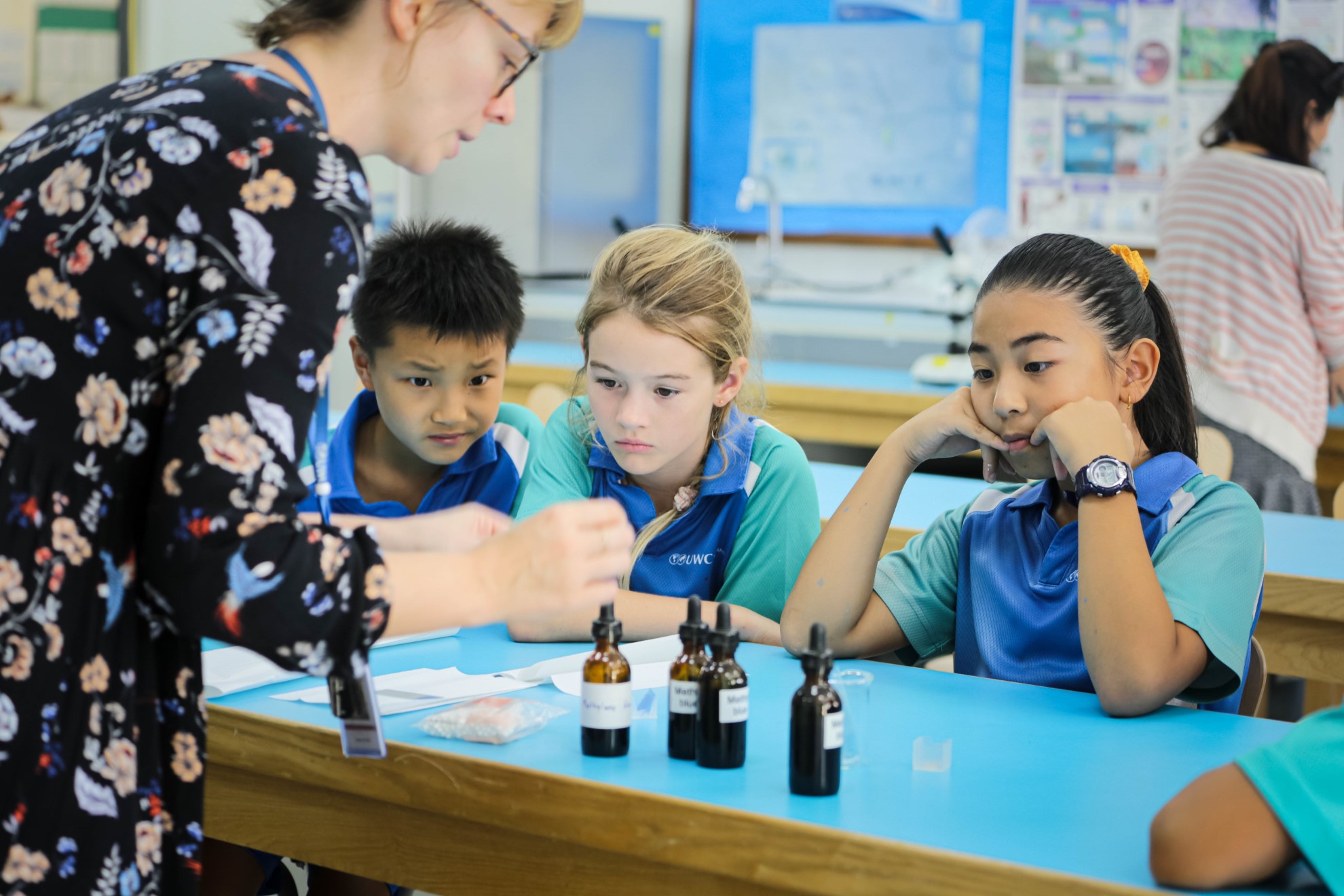For many teachers getting to teach the International Baccalaureate (IB) curriculum is a career goal, but gaining experience can feel like a “catch 22” situation. IB schools require teachers with previous IB experience, but that requires already being hired by an IB accredited school. Of course, IB teachers, like any other teacher, all started somewhere. It’s possible! All it takes is some planning, prioritisation and flexibility.
International Baccalaureate teaching jobs abroad.
There is a lot of potential within IB to find a job. There are options to grow as an educator and find leadership positions too, such as a programme coordinator or CAS supervisor—though you will likely need some prior IB experience for these leadership roles.
While many schools will ask for two years of IB teaching experience there are ways to build towards this goal. If IB experience is the top on your list of priorities for a new job, you may have to be flexible with locations, packages and ability to save. If you prioritise IB experience above all the other factors you’ll be sure to get a break into IB teaching.

What is the IB system of teaching?
If you are here, there’s a pretty large likelihood that you are already familiar with what the system of IB is. For those of you less familiar, according to the official website the International Baccalaureate curriculum aims to,
develop inquiring, knowledgeable and caring young people who help to create a better and more peaceful world through intercultural understanding and respect…These programmes encourage students across the world to become active, compassionate and lifelong learners who understand that other people, with their differences, can also be right.
The catch 22 of becoming an IB teacher.
This is a classic scenario we hear:
I’m teaching at an international school which doesn’t deliver IB. I would love for my career to go in the direction of IB, and want to start preparations. All IB schools state that they would prefer previous IB experience in their vacancies. To get experience I need the training, but also found out the training requires already being in an IB school. Where does this leave me?
Sound familiar? Not all is lost. We have drawn on our experienced community to give you the low down on gaining IB teacher experience

5 ways to get IB experience.
If you want to get into teaching the IB Diploma Programme it is almost essential to have experience of teaching 16-18 years old, so A Level or the equivalent is the best. From there you can build on the following:
1. Demonstrate an understanding of how the IB system works.
You should be able to demonstrate a good working knowledge and understanding of the IB programme you plan to teach (PYP, MYP and/or DP), despite not having taught it. Get familiar with the language used in the course syllabus and assessment styles. Taking the exam or reading through sample papers is a good strategy when wrapping your head around the curriculum.
IB tutoring can help you familiarise yourself with the style of the courses. Joining Facebook groups related to your subject group can connect you to support networks and resources.
2. Learn the IB learner profile.
Familiarise yourself with the true nature of IB and what is expected. There is no reason why you can’t adopt the values from the IB learner profile in the way you teach and within your students’ learning. Alexis Toye’s post on the IB learner profiles outlines some ideas on how to work the general principles into your classroom. Introducing these in your teaching will allow you to see how your students’ learning enhances and how your craft develops.
This reflection can then be used to develop your understanding of the IB programme. If you facilitate extra-curricular activities, that will sit perfectly within the Creativity, Action, Service (CAS) component of the IB.
3. Become a great international teacher.
Being able to demonstrate you are a good forward-thinking and progressive teacher will stand you in good stead when applying for an IB international teaching job. International-mindedness is a key component of IB education and should take a central focus of your teaching.
Do your research and find similarities in your own curriculum and explain how your teaching style will suit it well. For example, how do you encourage students to become independent learners?
3. Get experience in your home country first.
If you are in the UK or US and know you want to teach IB internationally, you can try to get experience in your home country with the IB curriculum before jetting off overseas. A growing number of private and state schools in the UK and the US offer IB, so you might want to seek employment at one of these schools to gain IB experience before taking the next step of teaching abroad.
4. Get some training.
There are a number of workshops that you can attend, either face-to-face or online. The IB Educator Certificate is also offered by various universities around the world; some offer a distance learning option. This alone won’t be enough so use it as a way to compliment your experience and demonstration of IB knowledge.
5. Chose a location wisely.
Pick a country and school that are willing to take less experienced IB teachers. Apparently, China is easier than in other parts of the world. Middle-level schools in South-East Asia are also a good bet. With all schools, they are looking for strong teachers who can adapt to the IB.
Try getting your foot in the door at a less desirable location for a few years before applying for your first choice.
If you are a newly qualified teacher (NQT) you can still get experience in an international school, too. There are a growing number of COBIS schools around the world that deliver NQT induction. This will allow you to gain your initial IB experience in an international setting.

How do you transition from UK or US curricula to an IB one?
Have you been teaching levels or AP courses and want to transition over to IB? Having an understanding of how they differ from a learner’s perspective can help you decide if it is for you. It will also enable you to figure out what steps you will need to take make in the transition.
What is the difference between A levels, AP courses and the IB Diploma?
- The IB and A-Levels are both 2 years of study. Levels are 3-4 subjects and IB takes on 6 subjects. AP courses only last a year and students can take as many as they want.
- In addition to the 6 subjects in IB there are additional components such as Extended Essays, Internal Assessments, Theory of Knowledge and CAS.
- The grading systems are different. A levels range from A* to E. IB which uses numbers 1-7, 7 being the highest. AP also uses a numeric scale, from 1 to 5.
- IB is a fast-growing qualification whereas A Levels have been around longer and remain seen as a global standard. AP courses have existed since 1955, but there are not widely used outside of the United States.
Expert first hand experience and advice in transitioning from a UK curriculum to an IB one
Our CEO, Alex has his own experience transitioning from the UK curriculum to an IB one and has the following guidance
- Read the programme guide for their subject – this is the Geography guide. This guide also includes the learner profile and an overview of the diploma as a whole.
- Build a working understanding of the Theory of Knowledge, Extended Essay and CAS as well as how the subject options work. You can find this information it the individual subject guides but also on the IB website. There are loads of videos and online training on there to really get stuck into your research.
- Understand how the IB curriculum is structured – what’s core and optional, what’s Higher Level and Standard Level.
- Assessment works differently to A-levels. Start to study the assessment which is combined of skills, coursework, exams etc.
- If you are currently in a school ask them to set you up with access to the IB portal. This will give you access to further resources.
- Once you have started at an IB school, ask you school to send you on an IB training course.
Teetering on the edge of an A-Level to IB transition or just wondering what it might entail, this wonderful testimonial from a teacher of ours is super helpful:
I feel that understanding the demands it places on students is key—you have to quickly understand that these kids are faced with not only academic pressures of six subjects but that their time is taken up by CAS activities, so having a strong sense of empathy and working with them on soft skills such as time management is vital.
We hope that this overview gives you hope in transitioning over to IB. A little reminder to check out the ‘key details’ section on Teacher Horizons’ school’s profile page to see if they are an IB accredited school.
Visit our Professional Learning Hub to connect and explore opportunities for professional growth, both as an individual and as a school.



